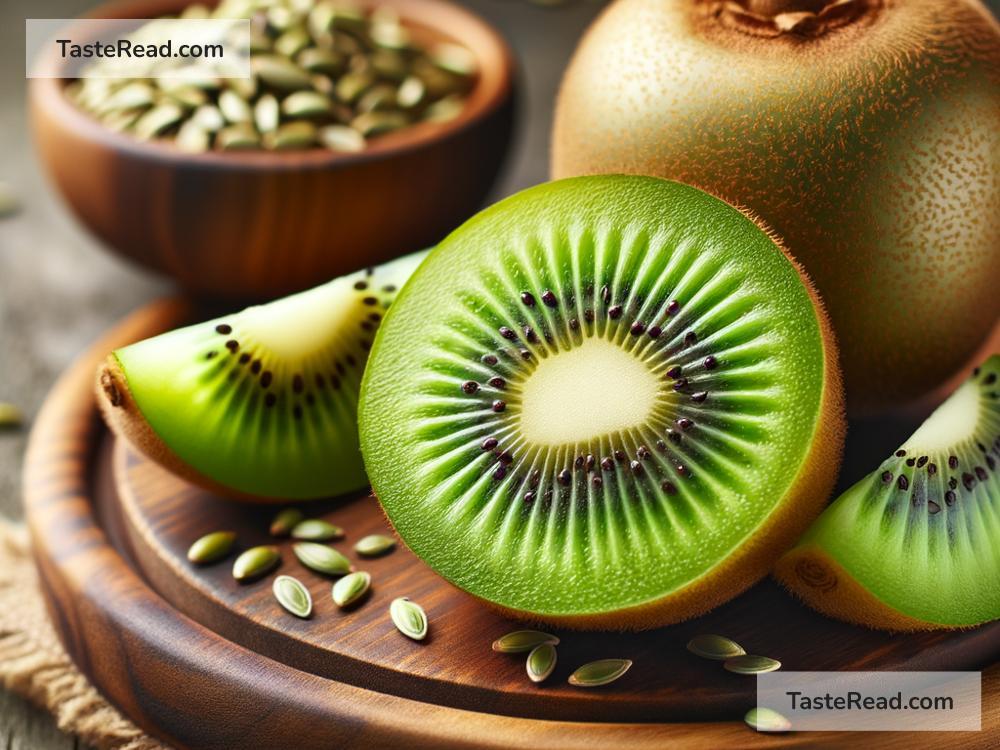The Truth About Kiwi Seeds and Their Benefits
Kiwis are small, fuzzy fruits with a delicious and tangy taste. Often referred to as “superfoods,” they are packed full of nutrients like vitamin C, fiber, and antioxidants. But here’s a little secret: it’s not just the green flesh of the kiwi that’s good for you; the tiny black seeds inside are also loaded with health benefits. Most people don’t pay much attention to kiwi seeds, but they are a hidden treasure. Let’s dive into the truth about kiwi seeds and why you shouldn’t overlook them.
What Are Kiwi Seeds?
Before we get into the benefits, let’s talk about kiwi seeds themselves. When you cut open a kiwi fruit, you’ll notice the small black seeds scattered throughout the lovely green center. These seeds are incredibly tiny, much smaller than the seeds you’d find in other fruits like apples or oranges. They’re soft and easy to eat, so there’s no need to spit them out or worry about crunching on them.
The seeds of a kiwi are technically edible seeds that come from the actinidia plant, from which kiwis grow. They are natural, harmless, and carry nutrients that add to the health-boosting power of this fruit.
What’s Inside Kiwi Seeds?
Although kiwi seeds are tiny, they come with surprising nutritional value. Here’s what you can find inside these little seeds:
-
Omega-3 Fatty Acids: Kiwi seeds are rich in alpha-linolenic acid (ALA), a type of omega-3 fatty acid. Omega-3s are essential for heart health and brain function. They also reduce inflammation in the body and support good skin health.
-
Dietary Fiber: Like other seeds, kiwi seeds contain fiber, which is great for your digestive system. Fiber helps keep your digestion regular and can make you feel fuller for longer.
-
Antioxidants: Kiwi seeds contain antioxidants that help protect your cells from damage caused by free radicals. Antioxidants play a role in reducing the risk of chronic diseases, including heart disease and cancer.
-
Minerals: Kiwi seeds contain minerals such as magnesium and potassium, which are important for muscle function, nerve activity, and maintaining a healthy balance of fluids in the body.
-
Protein: While the seeds are small, they do contribute a small amount of protein—essential for building and repairing tissues in your body.
The Health Benefits of Kiwi Seeds
Eating kiwi seeds can help you add an extra nutritional punch to your diet. Here are a few key benefits:
1. Good for Your Heart
The omega-3 fatty acids in kiwi seeds are excellent for your heart. They can help lower blood pressure and reduce the risk of heart disease. Omega-3s also improve blood vessel health, keeping your heart pumping strong.
2. Supports Digestive Health
Fiber is an essential nutrient for digestion, and kiwi seeds contain a good amount of it. The seeds work together with the fruit’s flesh to improve bowel movements and keep your digestive system healthy. If you struggle with constipation, kiwi seeds might help.
3. Boosts Skin Health
Omega-3 fatty acids don’t just help your heart; they also give your skin a natural glow. Kiwi seeds promote healthy skin by reducing inflammation and helping repair skin cells. Antioxidants in the seeds fight signs of aging and keep your skin looking youthful.
4. Maintains Strong Bones
Kiwi seeds contain minerals like magnesium and potassium, which are good for your bones. These minerals help prevent bone density loss as you age, keeping your bones strong and sturdy.
5. Helps Fight Disease
Thanks to their antioxidants, kiwi seeds play a role in preventing diseases such as cancer, diabetes, and heart disease. Antioxidants protect your cells from oxidative stress, which is a major cause of diseases and aging.
Are Kiwi Seeds Safe to Eat?
Yes, kiwi seeds are completely safe to eat! Unlike some fruit seeds, such as apple seeds (which contain a chemical called cyanide), kiwi seeds are non-toxic and perfectly edible. Since they are small and soft, eating kiwi seeds doesn’t require extra effort or cause discomfort. They blend seamlessly into the fruit’s texture, so you might not even realize you’re eating them.
How to Eat Kiwi Seeds
If you eat a kiwi, you’re already consuming the seeds—they’re part of the fruit! However, there are a few ways in which you can make the most of kiwi seeds:
-
Eat the fruit as is: Scoop out the flesh with a spoon or slice up the kiwi for snacking. The seeds are already inside the fruit, so you don’t need to do anything extra.
-
Include them in smoothies: When blending kiwis into smoothies, you get the seeds too. They add nutritional value without changing the taste of your drink.
-
Combine with salads: Kiwi slices, including their seeds, work well in fresh fruit or vegetable salads. It’s a quick and wholesome way to boost your meal.
Conclusion
The humble kiwi is a powerhouse of nutrition, and its seeds are no exception. Packed with omega-3s, fiber, antioxidants, minerals, and protein, kiwi seeds offer incredible health benefits for your heart, skin, digestion, and overall well-being. Best of all, you don’t need to do anything special to enjoy their goodness—just eat the fruit, seeds and all!
So, next time you enjoy a kiwi, remember that those tiny black seeds are more than just part of the fruit; they’re little health heroes giving your body an extra boost. Don’t overlook them—they’re truly a gift of nature!


